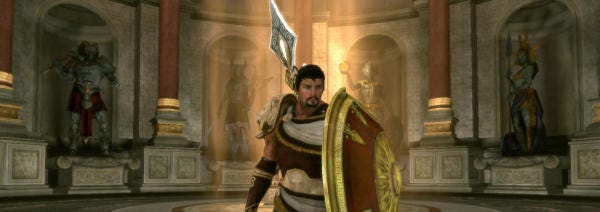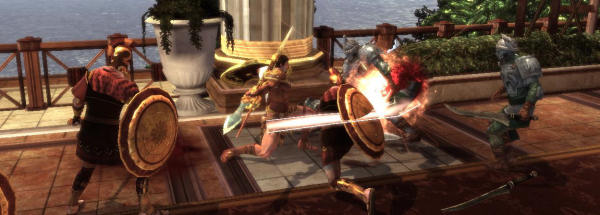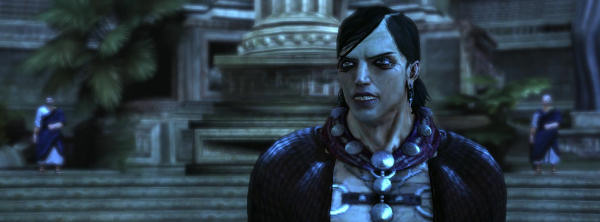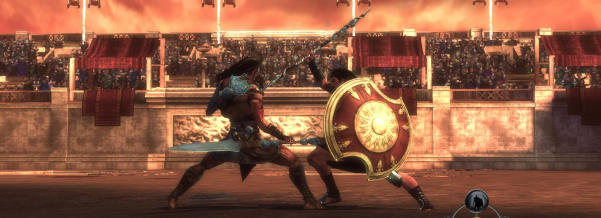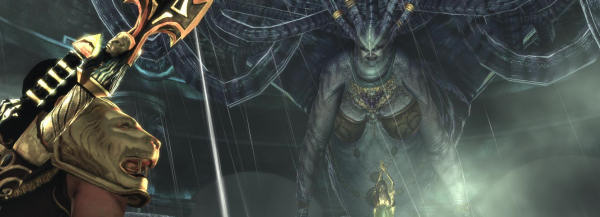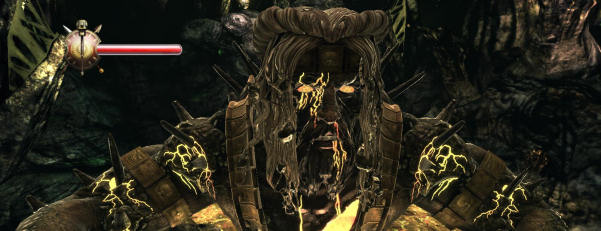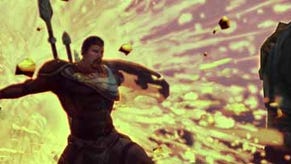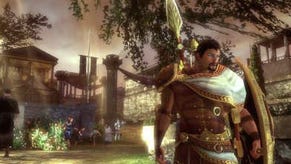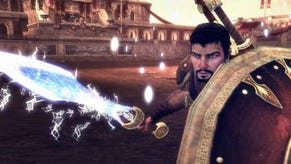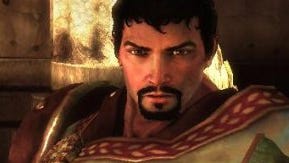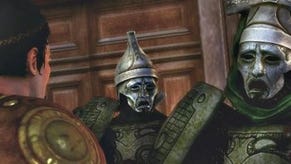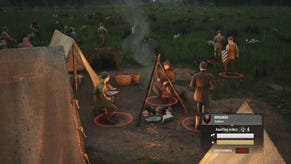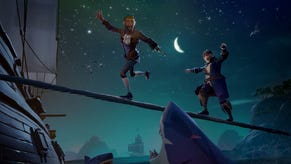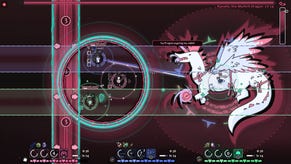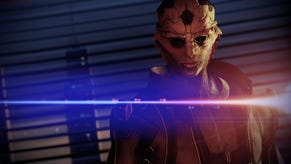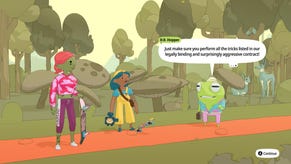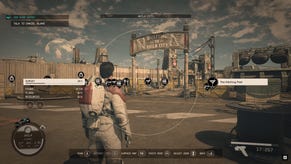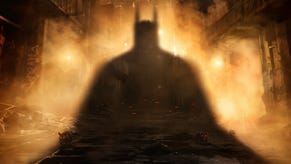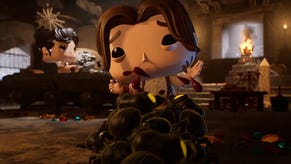Wot I Think: Rise Of The Argonauts
Action/RPG Rise of the Argonauts came out on all formats rather recently, and the PC version came out last week. Does Jason get the fleece, or just get fleeced? Here's Wot I Think:
“What a view!” boomed Hercules. “You can see for miles from here!” Looking across at the horizon I could see the tiled sea, and a grey, looming fog. Moving the mouse to the right angle, I could just make out the shadowy shape of a distant hill. So I went to find the graphics options, of which there are none. Quit to the main menu, but they’re not there either. Quit to desktop, search through the Start menus, directories… nothing. There are some inis I could edit, but screw that, I don’t need to see the hill that badly. Oh, I love a good port.
However, the botched translation to PC is really the last of Rise of the Argonauts’ worries. Far more comfortably played on a 360 controller it may be, but switching out the rest of the PC for an Xbox isn’t going to save it. Oh, Rise of the Argonauts, what were you meant to be?
The most obvious thought would be a gaming rendition of the story of Jason and the Argonauts, what with Jason being the player’s character. However, mysteriously, this is not the case at all. The story of Jason’s attempts to rise to power as King of Iolcus through forming the Argonauts and searching for the Golden Fleece has been put through a shredder. Some poor soul took the resulting strips and attempted to stick them back together, creating the utterly non-canon story on offer here. Jason, already King of Iolcus, is getting married to Alceme (apparently a completely invented character). During the ceremony she is murdered, and Jason begins his quest to find the Golden Fleece in order to bring her back to life.
Somehow the witch Medea, more traditionally Jason’s only wife, appears, now a former member of the Black Tongues, an evil order hell-bent on the death of Jason and his family. Of the traditional heroes making up the Argonauts, only Hercules and Atalanta (who isn’t fast, and was raised by centaurs) survive, the others gathered as you play including Pan and Achilles. And the legendary journey taken in the mythology is also completely gone, replaced by visiting three islands, each home to an heir of one of four gods (the fourth heir being revealed toward the end), by whose blood access to the Fleece will be possible. And no, the Fleece isn’t guarded by a dragon, there’s no sowing teeth and fighting skeletons (of ALL the things to leave out!), and it’s not even on Colchis. Right. Got that? It’s nothing to do with Jason and the Argonauts.
The next most likely idea of what was intended, at first glance, is a third-person action game. Jason comes equipped with three weapons, a sword, a spear and a mace. Each can be upgraded as the game goes on, offering new bonus powers, and enhanced versions of each weapon’s special moves. Combat involves attacks from multiple opponents, with no lock-on, meaning Jason can leap around swiping and slashing at all of them at once. It’s reminiscent of the combat in Sands of Time, but without the jumping, and a lot more slick. Along with two attacks for each weapon and the special move, there’s also a dodge and a shield bash, to fill all the 360 coloured buttons. There’s also special attacks achieved by switching weapon, but I’m buggered if I ever noticed or needed these, the weapon switch sometimes delaying up to five seconds after you pressed it.
There’s also the ‘god moves’. These are powers you purchase as you play by assigning achievements to each of the four main gods, Apollo, Ares, Hermes and Athena. It’s possibly the first smart in-game application of the achievement epidemic, making them relevant to you progress, using them as a replacement for XP. These go on the d-pad, and are used in combat. But despite all this, it’s not a third-person action game.
The fighting, the game’s strongest feature (to put that in context: you can get through almost every fight by randomly pressing the two attack buttons, and the occasional god power if you can get it to bloody trigger – it’s nothing spectacular), is astonishingly rarely used. Fights are few and far between, and in a cosmic reversal of most story-led games, they’re a moment of respite from the utter tedium that makes up the rest of the game.
If anything, ROTA was meant to be a Bioware-inspired RPG. For the vast majority of the game you’re traipsing around the enormous, bland, empty locations occasionally dialogue-skipping your way through another ghastly conversation, until you, the king, are asked to deliver someone’s pie or something. Except you’re not really gathering quests, you’re just building up a list of destinations you have to lethargically jog toward, desperately hoping for a fight along the way. The lengthy opening, in Iolcus, defies previously known boundaries for tiresome time-wasting. After being forced to run back and forth through the castle, making moral decisions of no consequence whatsoever, you’re then charged with sauntering your kingly arse down to the docks were your new boat, the Argo, is waiting. Get there and a woman asks you if you can give a message to someone back in the castle, and an old man tells you his son is missing.
So in case any of it is critical to the main plot you slog all the way back up again, Hercules faffing around behind you, talk to people, and then all the way back down, getting spun around every step of the way. The map is available through the options menu, which after appearing takes an agonising couple of seconds before it will let you select anything. There’s no mini-map, nor any compass, which makes the constant 180 turns in the corridors each city is made up of incessantly confusing and disorientating. This is not helped by Jason’s companions apparently on a sponsored attempt to perform non-stop Marx Bros routines by wedging themselves into every doorway and corridor such that you can’t get past them. Because oh boy, does this game like clipping.
Every object you see is a good foot wider than it appears. Every wall, every door frame, every rock and gatepost, is surrounded by an impenetrable force that Jason collides into. You start to see the world this way, aiming for the middle third of staircases, taking wide arcs around children in the street. However, there’s no manoeuvring around the idiots who accompany you, leaving you to scream at the screen until they eventually shuffle out the way. (A highlight was Hercules' crazy spinning dance he performed with a nearby guard, during a conversation Jason was having about how much he missed his dead wife.)
There are a few traditional characters you meet along the way. Medusa appears, although appears to have been cured of being a gorgon and is instead a giant blue monster with giant eels for limbs. She has a brother, rather than two sisters, and you get to cure her and make her back into a regular human… Oh, okay, I’ll stop complaining about it not having anything to do with the mythology. But seriously, Medusa? Can you really change Medusa? There’s also Achilles (apparently in his Iliad form where he’s vulnerable, but that’s about it for matching any of his various histories), who you get to fight in battle, while he makes smug comments. Which is quite fun.
As levels progress you get to take your choice of characters with you (although there’s only three occasions of this, the game being around 15 hours long), which again echoes Bioware’s approach. Who you have with you slightly alters the experience, in as much as the comments interjected by them during conversations. But not much more. This, and the occasional moral dilemmas, are poorly understood. Say what you like, really, because it’s not going to make any difference, beyond gathering slight favour with that choice’s god. And unlike Bioware games, there’s no attempt to disguise this. Various ideas are quite nice – restoring a village of inhabitants turned to stone, giving last rites to ghosts haunting an island – but they don’t really have weight. Once sequence which could have been great, where you are charged with a philosophical debate, is reduced to randomly guessing the ambiguous answer until you get them ‘right’, repeating the sequence after each failure until you reach the end. It’s all so watery-thin.
Naturally it climaxes with at least three false endings, then a boss fight utterly incongruous with the entire game, and then doesn’t give you any closure on any of the stories of the accompanying characters, other than to see them all standing together, laughing and waving goodbye. (They might not have been waving goodbye.)
It’s all so frustrating not because of the shitty port, horrible staggering, laughable animations when going up and down steps, the slowest doors in gaming history (okay, it IS so frustrating because of these godforsaken doors - they’re not hiding loading, they’re simply the stupidest near-static animations you could ever imagine, especially after the game has forced you to run through them for a fourth time on your constant back-and-forth labouring), nor even the occasional crashing to desktop during conversations. It’s frustrating because it’s half a good game. You can see why it should have been good, what it could have been, and yet you’re always chugging along the boring corridors, rattling on about your dead wife. During the combat you're happy, it's fine. But wow, it needed more of that.
Oh, and missing out the fighting skeletons. Good grief.
